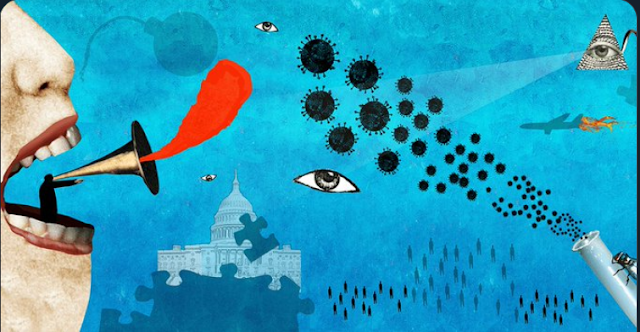Here are some interesting articles I've read over the past week I think are worth checking out.
Diarmaid Ferriter, “Efforts to avoid ‘public scandal’ created the greatest scandal of all.” 15 Jan, Irish Times.
"It is so cruelly ironic that the concerted and co-ordinated efforts to avoid 'public scandal' created the greatest scandals of all."
Dylan Matthews, “The F Word: the debate over whether to call Donald Trump a fascist, and why it matters.” 14 Jan, Vox.
"Back in 2015, no fascism expert would use the word to describe Trump. In October 2020, they were inching closer, but most dismissed the term as likely an exaggeration or distraction."
Greg Miller, “The enduring allure of conspiracies.” 14 Jan, Knowable Magazine.
Are conspiracy theories more prevalent and influential today, or does it just seem that way?
Stuart Ritchie, “Do you know how Covid really spreads?” 15 Jan, UnHerd.
"Endlessly repeating an outdated slogan is unforgivable now that the science has moved on. Airborne transmission isn’t an afterthought -- it might even be the main way the virus spreads. It’s time to break the inertia, and change the message altogether."
Stuart Ritchie, “Does vitamin D really help combat Covid-19?” 13 Jan, New Statesman.
"Many more trials of vitamin D and Covid-19 are on the way, so we’ll get a more definitive answer soon. Until then, let’s lay off the overblown claims about near-magical substances and sinister conspiracies. It might feel unsatisfying but, as with so many parts of the coronavirus debate, the only sensible scientific view on vitamin D is one of uncertainty."
Christopher J. Snowdon, “Rise of the Coronavirus Cranks.” 16 Jan, Quillette.
"Until the first vaccine arrived in December, COVID scepticism offered people a way out. If the dangers of the virus were being overhyped by fearmongers, and lockdowns were entirely ineffective, then societies could reopen secure in the knowledge that there was nothing that could be done to reduce the death toll (which would, in any case, be a fraction of what we were told). The comforting lie that trade-offs could be avoided has proved irresistible to those who have surrendered to confirmation bias and constructed a parallel and preferable version of reality."

Comments
Post a Comment